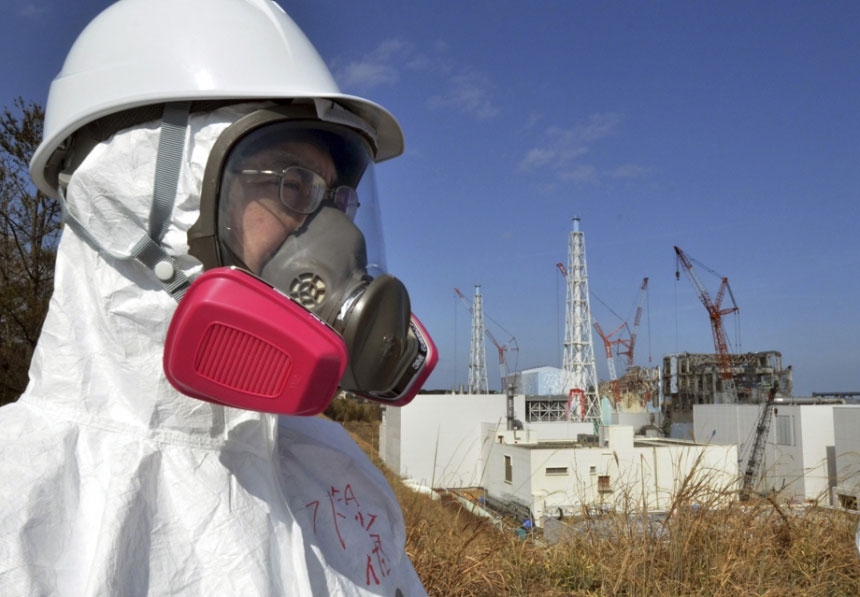Japan seeks to reduce radiation levels in Fukushima
The Fukushima government reduced the level of radiation to 30 to 50% in the process of detoxifying forests, residential areas, agricultural and road zones and striving to reach a common level of 50%, announced by NHK. , Japan said.
>>>Leakage of radioactive water at the Fukushima plant 1
Detoxification in places where the test proved that the highest radioactive purification effect was achieved in agricultural and road zones, up to 50%. In residential areas only 40% reduction, while in the mountains and new grazing areas 20%.

Fukushima I a year after the disaster.
Currently, Shenzhen is applying some detoxification methods. It is to remove the top layer of soil, clean the roads, roofs and other surfaces to remove dust with high-pressure tap water as well as cut the grass, cut flowers and wipe off the fallen leaves so that they do not become a source Nourishing radiation. Many things still have to be done by hand.
At the cleaned roads, the level of radiation decreased by 52.9%, from 1.53 to 0.72 microseconds / hour. In lawns, a decrease of 27.2%, from 1.95 to 1.42 microseconds / hour and in residential areas decreased by 41.3% from 1.46 to 0.76 microseconds / hour.
The application of detoxification methods has become a model for treating the environment from radiation on a large scale. Normally decontamination must be carried out on four stages: digging out the stone, big stumps, cutting grass; peel off the surface soil twice and finally cover with new soil from other places. Roofs, roads, inside water pipes washed with high pressure water and scrubbed with a brush if possible.
After the nuclear disaster on March 11, 2011 in the Fukushima-1 area, all 5cm of soil will have to be removed, with an amount of 25 million cubic meters removed but so far, the issue of location and method of treatment The reason is still open.
- Radiation from Fukushima is only 10% of the Chernobyl case
- Radiation to extremely high levels in the reactor in Japan
- Monkeys measure radiation in Japan
- Decontamination work around the Fukushima Plant was three years late
- Products from Fukushima no longer trace radiation
- Unusually high radiation detection in the Japanese capital
- Accumulated contamination of Fukushima workers is still high
- Japan found concrete to build houses contaminated with radiation
- Sunflower does not reduce radioactivity in soil
- Radiation in Japan is no longer dangerous
- Detection of Fukushima radiation on the Canadian coast
- Japan: Robot radiation resistance incident
 Is the magnetic North Pole shift dangerous to humanity?
Is the magnetic North Pole shift dangerous to humanity? Washington legalizes the recycling of human bodies into fertilizer
Washington legalizes the recycling of human bodies into fertilizer Lightning stone - the mysterious guest
Lightning stone - the mysterious guest Stunned by the mysterious sunset, strange appearance
Stunned by the mysterious sunset, strange appearance